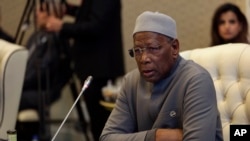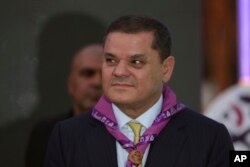A standoff between Libya's rival political and armed factions over the interim government has festered since early last year, leading to brief bouts of fighting. Bathily was addressing the United Nations Security Council after the speaker of Libya's eastern-based parliament issued new electoral laws in the framework of international diplomacy aimed at resolving years of conflict at the ballot box.
Libya has had little peace or security since a 2011 NATO-backed uprising and it split in 2014 between warring eastern and western factions though major warfare has been mostly paused since a 2020 ceasefire.
A Government of National Unity (GNU) under Prime Minister Abdulhamid al-Dbeibah was installed through a U.N.-backed process in 2021 but the parliament no longer recognises its legitimacy.
"From a technical perspective the revised laws are an improvement to the previous drafts," said Bathily in his first comments on the new electoral laws.
"From a political perspective, the most politically contentious issues... remain unresolved," he added, pointing to the rejection of key amendments by another legislative body, the High State Council (HSC).
Those issues include a mandatory run-off in the presidential election even if one candidate wins most of the votes, a rule Bathily said could be misused to exclude candidates from the second round or question a majority result.
Subjecting the validity of the parliamentary elections to that of the presidential elections "puts the process at a high risk of disruption," Bathily said.
However, the most difficult issue is creation of a new government to oversee the elections. Dbeibah has refused to step down until after an election and has rejected the legitimacy of the parliament, which was elected in 2014 for a two-year term. Bathily has also said elections require a unified government agreed upon by the major players in eastern and western Libya, which until now have shown little inclination to agree.












Forum